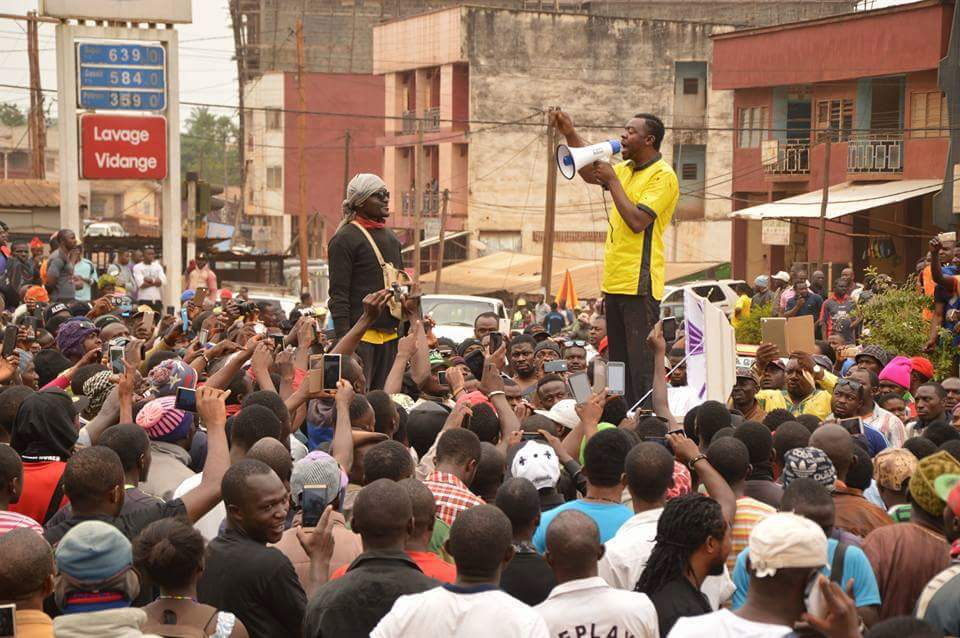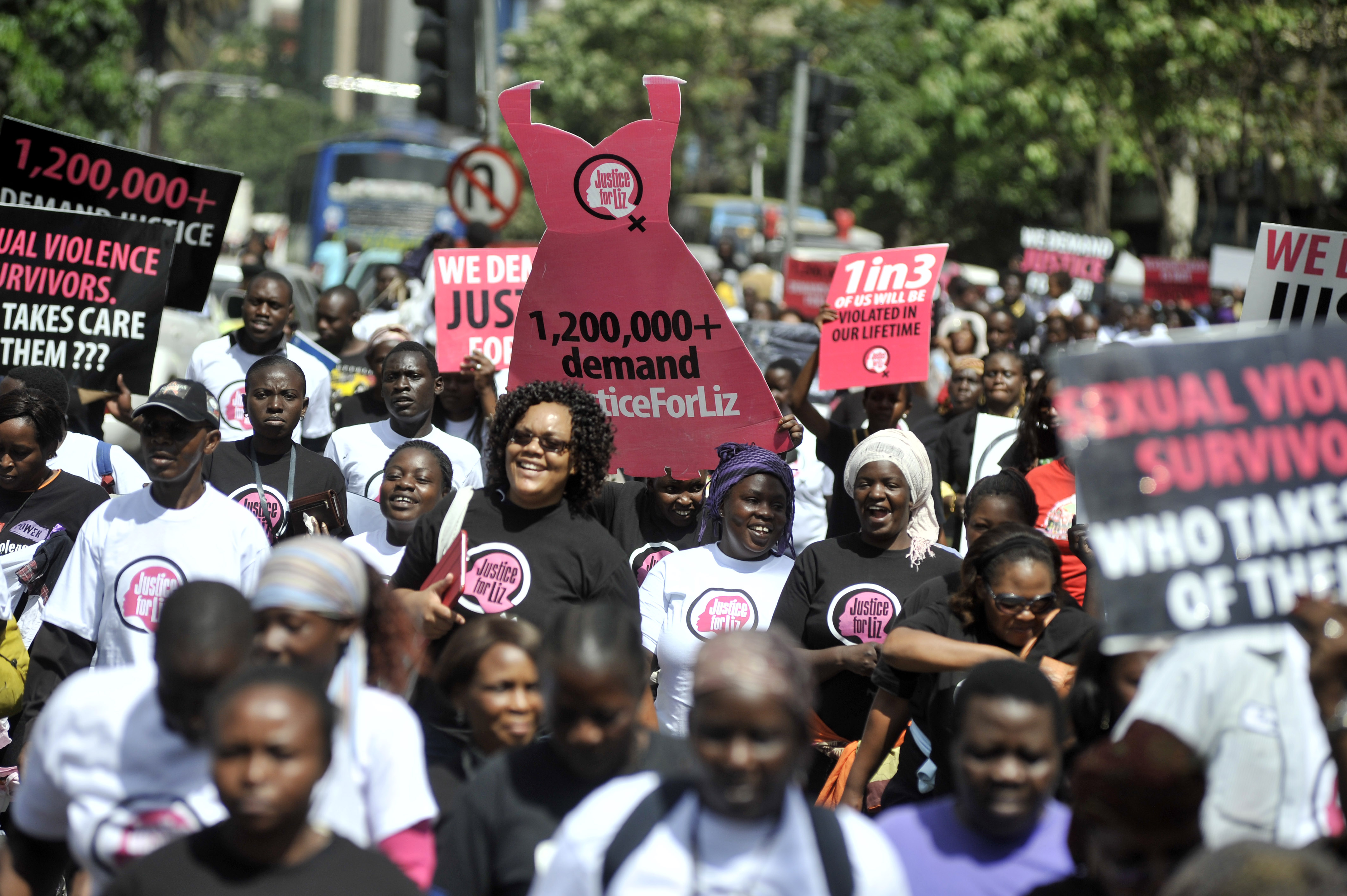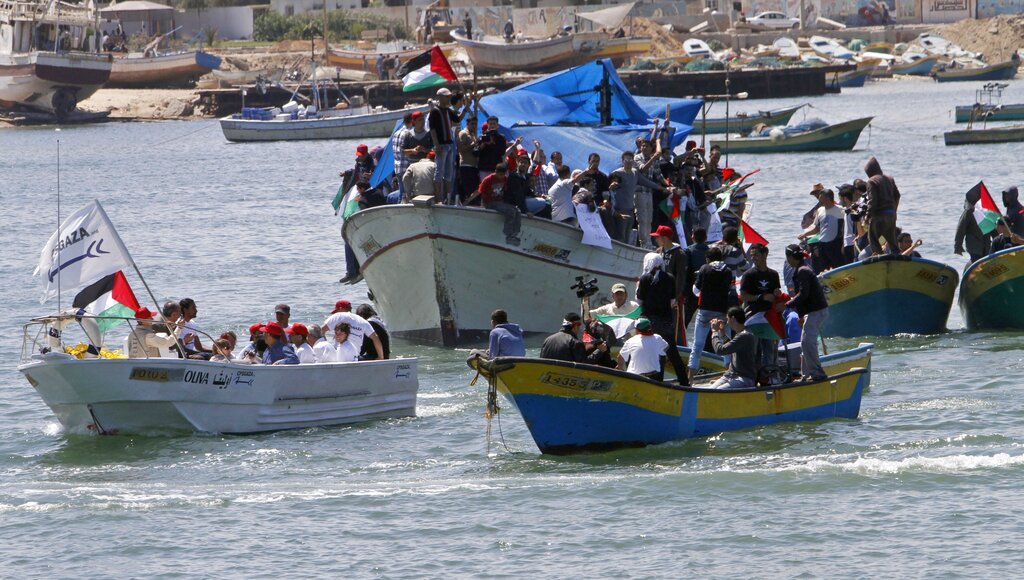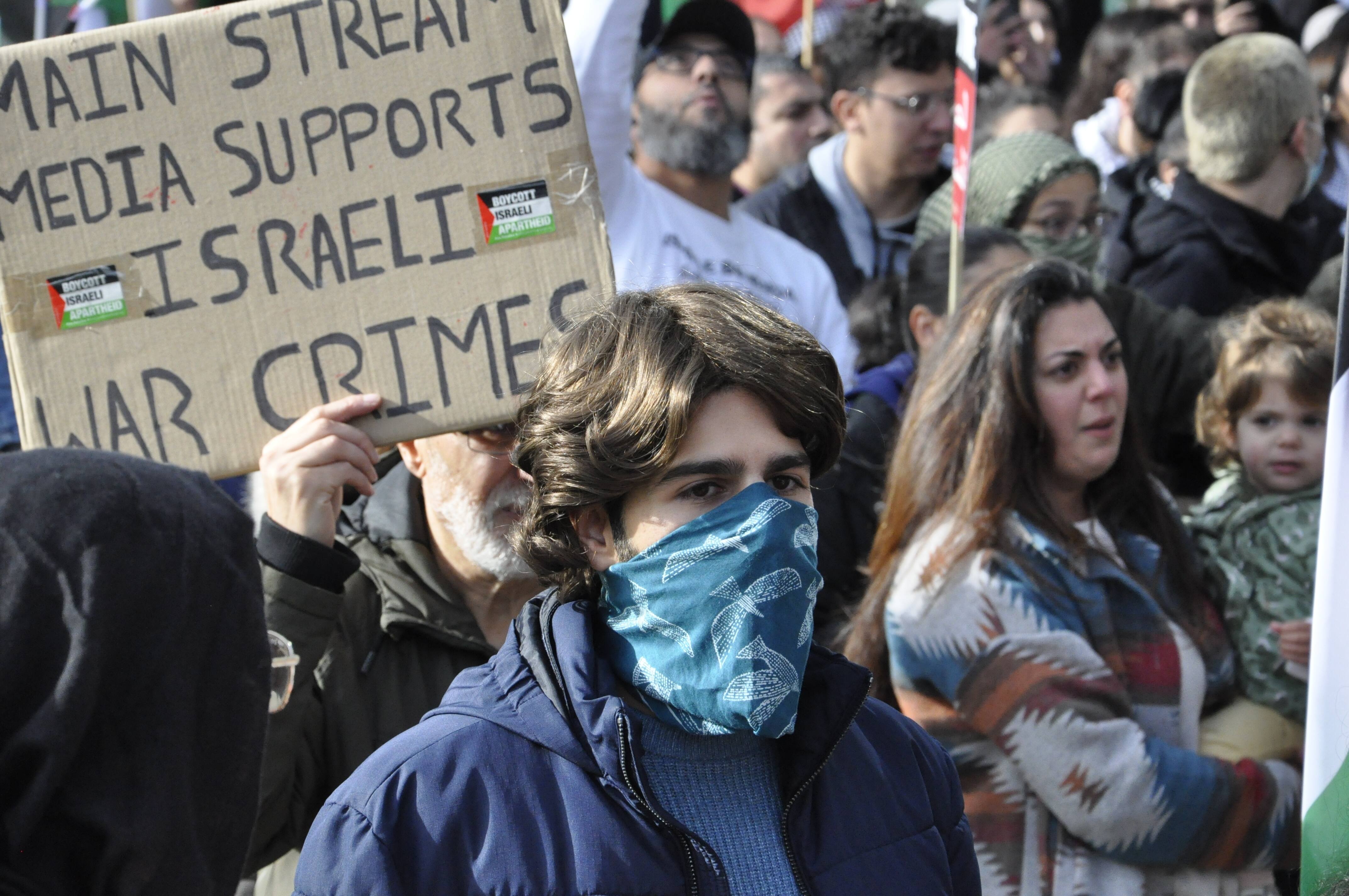يقول جوليان أسانج إن "الصحافة الاستقصائية هي استعادة الواقع من المتنفذين الأقوياء"
بدأت الصحافة الاستقصائية في الوطن العربي على استحياء ولا زالت تنمو وتتطور على استحياء، لكن ليس في البلدان التي تشهد نزاعات مسلحة أو أزمات سياسية منذ سنوات طويلة.
في ظل ذلك اقتصرت الصحافة الاستقصائية في الوطن العربي على عدد محدود من الصحفيين في بداية التسعينات، مستفيدين من قدرات اكتسبوها بعد تجارب عاشوها في وسائل إعلام دولية بدأ فيها إنتاج التحقيقات الاستقصائية منذ زمن بعيد، ولعل برنامج "سري للغاية " للإعلامي يسري فودة على قناة الجزيرة كان اللبنة الأساسية لتأسيس وحدات صحفية استقصائية في بعض وسائل الإعلام العربية. لقد قدم البرنامج محتوى وأسلوبا إعلاميا ليس فقط للمشاهد بل حتى للصحفيين العرب الذين تعلموا من البرنامج طريقة جديدة ينطلقون منها.
البداية في جامعة صنعاء
باعتبار أن مفهوم الصحافة الاستقصائية حديث على الإعلام العربي، كان لابد له أن يكون حديثا على الساحة الأكاديمية في الجامعات العربية لا سيما جامعة صنعاء التي لا تزال مناهجها الأكاديمية قديمة نوعا ما ومن بينها كلية الإعلام. حتى العام 2013 لم تكن هناك مساقات أكاديمية خاصة بالصحافة الاستقصائية في الجامعة. وبفضل اتفاق مع شبكة "أريج" أضيف مساق لكن دون أي دراسة لواقع الأكاديميين في الجامعة والكلية ودون تجربة ميدانية حقيقية للمدرسين الذين قرروا تدريس المنهج وفقا لقدرات المدرسين هناك وإنما اعتمدت كتاب "أريج" "على درب الحقيقة" ليكون منهج المادة، علما أنه دليل تدريبي أكثر منه أكاديمي.
يقول أبوبكر العمودي الباحث في مجال الصحافة الاستقصائية في أمريكا إن "هناك صدع كبير بين صانع المادة الصحفية الاستقصائية وبين مستهلكها، من جهة، ومن جهة ثانية، عدم الدراية الكافية لدى مخرجات كليات الصحافة والإعلام في الوطن العربي بأبجديات الصحافة الاستقصائية. قد يمتعض البعض من هذه الملاحظة لكنها نابعة من نتيجة خالفت التوقعات عندما استطلعت في أحد أبحاثي تصورات ممارسي الصحافة الاستقصائية في الوطن العربي والدراسة المسحية التي قاست عينة من طلبة كليات الصحافة ببعض الجامعات العربية. الكثير من المستجوبين على استبيان البحث أظهروا عدم الفهم الشامل بمفهوم الصحافة الاستقصائية، ولعل ما أدهشني حقيقة هو أنه وعندما نستعيض بمفردة (استقصاء) لنستبدلها بمفردة (تحقيق) يبدي الطالب إجابات أكثر دقة وثبات.
ويضيف العمودي "أصبح طالب الصحافة والإعلام في أمسّ الحاجة للالتحاق بدورات تدريبية تعزز لديه أوجه القصور التي خلفتها الأربع السنوات التي قضاها في الجامعة لأنه لم يمارس الصحافة في الميدان، ولطغيان الجانب النظري في التدريس. وأخيرا، عندما يلتحق بدورة تدريبية فهو قد أصبح بين يدي مدرب مارس الصحافة في الميدان ناهيك عن خبراته التدريبية.
أصبح طالب الصحافة في أمسّ الحاجة للالتحاق بدورات تدريبية تعزز لديه أوجه القصور التي خلفتها الأربع السنوات التي قضاها في الجامعة لأنه لم يمارس الصحافة في الميدان، ولطغيان الجانب النظري في التدريس.
منهج جاهز
منذ عدة سنوات بدأت كليات الإعلام في الجامعات اليمنية لا سيما في صنعاء – عدن بإضافة مادة جديد إلى مناهجها التعليمية، وهي مادة صحافة الاستقصاء، وكغيرها من المواد التي يتم تدريسها في كليات الإعلام في الجامعات اليمنية، التي لم تأت بناء على احتياجات المدرسين وقدراتهم ما انعكس سلبا على ما يتلقاه الطلاب هناك، حيث اتجه مدرسو المادة إلى الاعتماد على دليل "أريج" الجاهز الصادر سنة 2009.
محمد جهلان، الصحفي الاستقصائي والمدير التنفيذي للشبكة اليمنية للصحافة الاستقصائية "يمان" يقول "إن طبيعة الصحافة الاستقصائية مختلفة عن بقية القوالب الأخرى، فالصحفي الاستقصائي يعمل في الميدان أكثر من أي صحفي آخر ويعيش تجارب متعددة لا تخلو من الخطورة، لذلك فإنه في الكلية لا يقوم بالتطبيق الفعلي كما في التدريب، كما أن المدرسين في الجامعات ليسوا ممارسين للصحافة بالمعنى الحرفي، وهذا ما تحتاجه الصحافة الاستقصائية وهي الممارسة أولا ليكون تأثيره كبيرا على المتدربين".
خلال السنوات الثلاث الماضية ساهمت العديد منظمات المحلية والدولية في تدريب عدد كبير من الصحفيين اليمنيين في الصحافة الاستقصائية وأساسياتها، من بينها شبكة "أريج" والشبكة اليمنية للصحافة الاستقصائية يمان ومؤسسة فريدريش الألمانية عبر مكتبها في اليمن والتي دربت أكثر من 250 صحفي وصحفية من مختلف جغرافيا اليمن، وساهم أولَئِكَ الصحفيون في إنتاج الكثير من التحقيقات الاستقصائية التي نشرت مؤخرا في وسائل إعلام محلية أو عربية ودولية. ومن بين هؤلاء الصحفي عبد القادر عثمان الذي أنتج تحقيقات مع مؤسسة الثورة المحلية في صنعاء ودرج والعربي.
يقول عثمان: "في التدريب المادة مضغوطة ومختصرة تتضمن تجارب عملية وتحفيزا ومدربين يمارسون العمل في الميدان، بينما في الجامعة هناك فجوة بين النظري والميدان، وهناك نوع من الرتابة بسبب الوقت الفاصل بين الحصص" قبل أن يضيف: "الفارق الجوهري بين المدرب والأكاديمي في آلية تقديمه للمادة وكمية المعلومات وكيفية عرضها، فالأكاديمي رغم غزارة معرفته وسعة معلوماته إلا أن الأساليب المتبعة لديه لاتزال تعتمد على نظرية الطلقة السحرية بين المرسل والمستقبل، وهذا لم يعد كافيا لإيصال المعلومة بالطريقة المثلى، أما المدرب فيستند في التدريب إلى الحلقات النقاشية والممارسة العملية داخل القاعة بحيث يعزز كل مرحلة من مراحل العرض بنقاش وتمرين يخلق تبادلا معرفيا لدى المتلقين ويزيدهم مهارة.
الخبرة الميدانية مقابل الروتين الأكاديمية
يجب أن يتحلى الصحفي الاستقصائي بمهارات كثيرة، فالعمل الميداني وجمع الأدلة مهارة يجب أن يتقنها الصحفي الذي يريد أن ينتج تحقيقات استقصائية لا سيما في بلد يشهد نزاعا مسلحا منذ سبع سنوات. يقول الصحفي والمعيد في جامعة عدن، نشوان العثماني والذي قام بتدريس المادة لفترة قصيرة إنه قدم النصح للكلية بأن مدرس مادة الصحافة الاستقصائية لابد أن يكون ممارسا لها وقام بإنتاج تحقيقات متعددة لأن دليل "أريج" وغيرها يستطيع أي شخص تقديمه نظريا، لكن الممارس للصحافة الاستقصائية سيكون أكثر حيوية من الأكاديمي وسوف يساعد الطلاب على اختيار الأفكار والفرضيات وتقديم النصح لهم ومتى يتقدمون أكثر ومتى يتوقفون أكثر ومتى يغيرون الأفكار وهو ما سيقدمه لهم الممارس فقط.
يعرّف التعليم على أنّه ما يُدرّس في المدارس والجامعات والدراسات العليا، حيث يتم نقل المعرفة حول حقائق الأمور والمفاهيم والأحداث من المعلمين للطلاب، ليُمنح الطلاب في النهاية القدرة على حل المشكلات، ومن ناحية أخرى فإن التدريب هو القيام بممارسة مهمة معينة والتركيز عليها حتى يتم إتقانها، كما يتعلق التدريب بالجوانب العملية للمهمة أو الوظيفة.
يعتبر المدرب والخبير الإعلامي نشوان السميري أن كثيرا من الأكاديميين -وليس جميعهم- يأخذون المراجع الجاهزة، وهذا ما يتماشى مع المحتوى العام وأهداف التعليم التي تلائم حاجة الفرد والمجتمع بصورة عامة، في حين أن محتوى التدريب محدد ولديه أهداف سلوكية محددة تجعل العاملين أكثر كفاءة وفاعلية في وظائفهم، عبر إكسابهم المعلومات والمهارات معا وليس المعارف والمعلومات فقط.
ويرى السميري أن الأمر يتعلق أيضا بضعف قدرات بعض الأكاديميين في تطوير أنفسهم وموادهم الدراسية لتواكب الجديد واحتياجات سوق العمل، وهي مشكلة المصادر الجامعية نفسها في تأهيل الصحفيين في كثير من البلدان، كما أن بعضهم لم يعمل بشكل كاف في المهنة حتى يلامس تعليمه فهم الطلاب ومداركهم".
في التدريب المادة مضغوطة ومختصرة تتضمن تجارب عملية وتحفيزا ومدربين يمارسون العمل في الميدان، بينما في الجامعة هناك فجوة بين النظري والميدان.
شح الإمكانيات عائق أمام التطوير
بينما يختلف الأستاذ الدكتور علي العمار، أستاذ الصحافة الاستقصائية في كلية الإعلام بجامعة صنعاء مع وجهات النظر تلك، حيث يقول إن الصحفي يذهب إلى التدريب بعد أن يكون قد استوعب الخطوات الخاصة بتنفيذ التحقيق الاستقصائي واكتسب الجانب المعرفي في الكلية، وبالتالي فهو محتاج للممارسة أو التدريب أكثر لصقل الموهبة التي اكتسبها في الكلية، إضافة إلى أن عدد الطلاب في قاعة الكلية غير عددهم في قاعة التدريب، والضغط الذي يواجهه الطلاب في الكلية نتيجة كثرة المواد في الوقت نفسه لا يجعلهم يركزون على مادة بذاتها .
ورغم قلة الإمكانيات التي لا تساعد على التحصيل، يقول العمار إنهم في كلية الإعلام بجامعة صنعاء انتهوا من تحديث المنهج وفقا لشروط الاعتماد الأكاديمي وضبط الجودة بما يتواكب مع التطورات الحديثة في مجال الإعلام، ومن ضمن ذلك مساقات تدريس الصحافة الاستقصائية بمصطلحات جديدة خاصة بالكلية إلا أن المشكلة التي تواجههم في ذلك "عدم قدرتنا على الحصول على مراجع حديثة في هذا المجال وعدم قدرة عضو هيئة التدريس بالسفر إلى الخارج للحصول عليها نتيجة ضعف الإمكانيات المادية بسبب انقطاع المرتبات لأكثر من سبع سنوات.
هذا باختصار.
أثناء العمل على هذا التقرير تحدثنا إلى 15 صحفيا وصحفية تلقوا تدريبا على أساسيات الصحافة الاستقصائية مع منظمات محلية وإقليمية، وفي نفس الوقت درسوا أساسيات الصحافة الاستقصائية في جامعات صنعاء وعدن. أجمع هؤلاء أن التدريب الذي اختلفت مدته بين ثلاثة أيام وستة أيام كان أكثر فائدة من الدراسة في الجامعة. ويرى المتحدثون أن المدربين كانوا ذوي خبرة ميدانية وأنتجوا تحقيقات استقصائية عديدة ما جعلهم يحملون إجابات لأي تساؤلات يثيرها الصحفيون حول الصعاب الميدانية وكيفية الحصول على الوثائق والأدلة والتعامل مع المصادر وهو ما لا يتوفر دائما لدى بعض الأكاديميين.
صفا ناصر، المعيدة في كلية الإعلام جامعة عدن، تؤكد أنها في العام 2014 كانت تدرس مادة الصحافة الاستقصائية ضمن أول دفعة تدرس المادة بعد إقرارها في تمهيدي الماجستير، وكان المنهج دليل "أريج" (على درب الحقيقة) وهنا كان مكمن الخطأ، وأول عائق أمام استيعاب المادة؛ فالدليل عملي للصحفيين الممارسين، لا منهج أكاديمي، فضلا عن أنه مترجم ويحتوي على الكثير من المصطلحات التي لم يألفها المتلقي العربي، "وإذا لم تكن تجيد الإنجليزية فسيحصل سوء فهم في استيعاب المعلومة".
في العام 2019 بدأت صفا بتدريس المادة في جامعة، وتحكي عن هذه التجربة بالقول إن "إدراج المساق بشكل عشوائي دون توفر مفردات للمادة لم يكن موفقا، إذ اضطررت إلى اعتماد منهج مستوى من رسالتي وبعض المراجع، وهنا كان الخطأ الثاني لأن المنهج يقر بشكل علمي بعد ورشات عمل واجتماعات ودراسة، ولكن هذا لم يحصل.
"تحدثنا إلى 15 صحفيا وصحفية تلقوا تدريبا على أساسيات الصحافة الاستقصائية، وسبق لهم أن درسوا في الجامعات. أجمع هؤلاء أن التدريب الذي اختلفت مدته بين ثلاثة أيام وستة أيام كان أكثر فائدة من الدراسة في الجامعة".

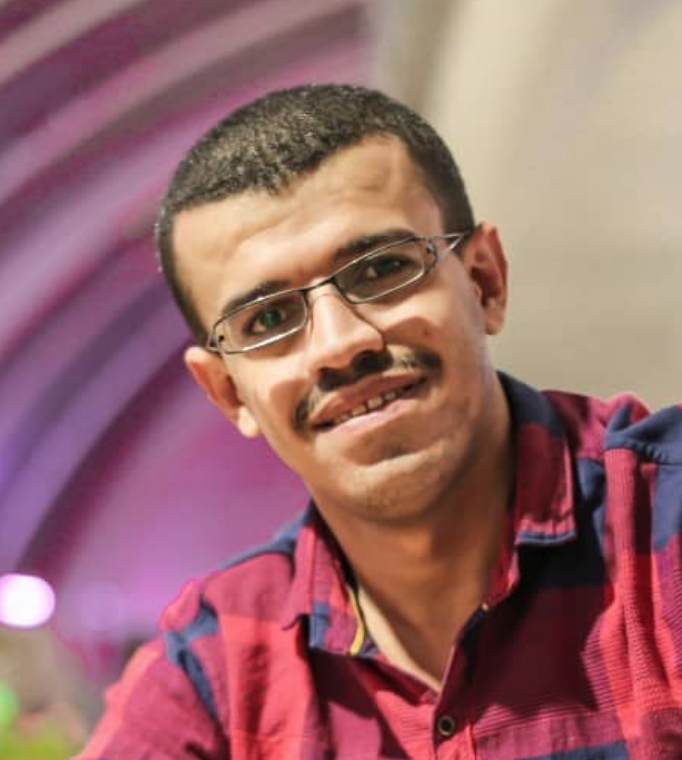
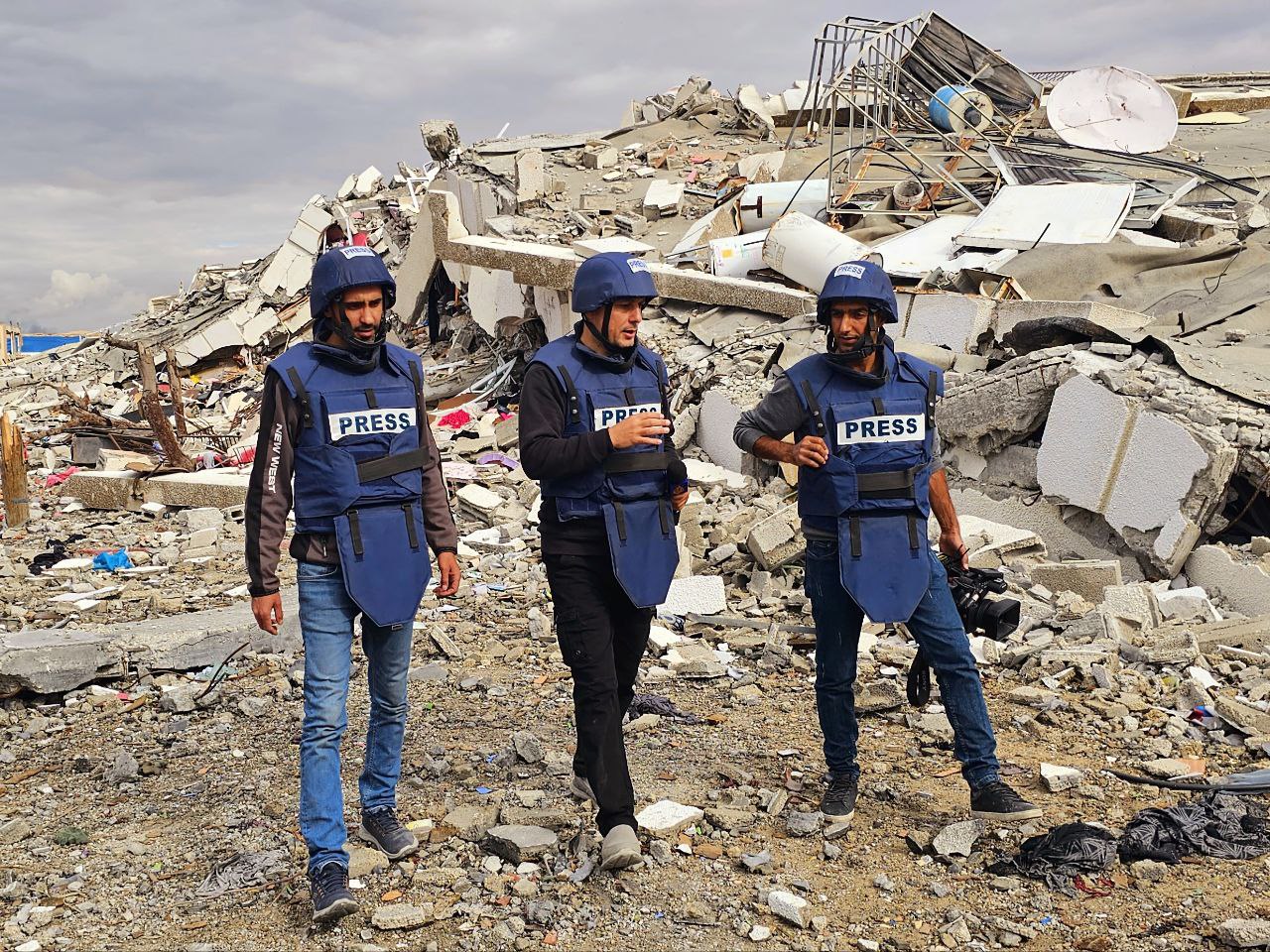

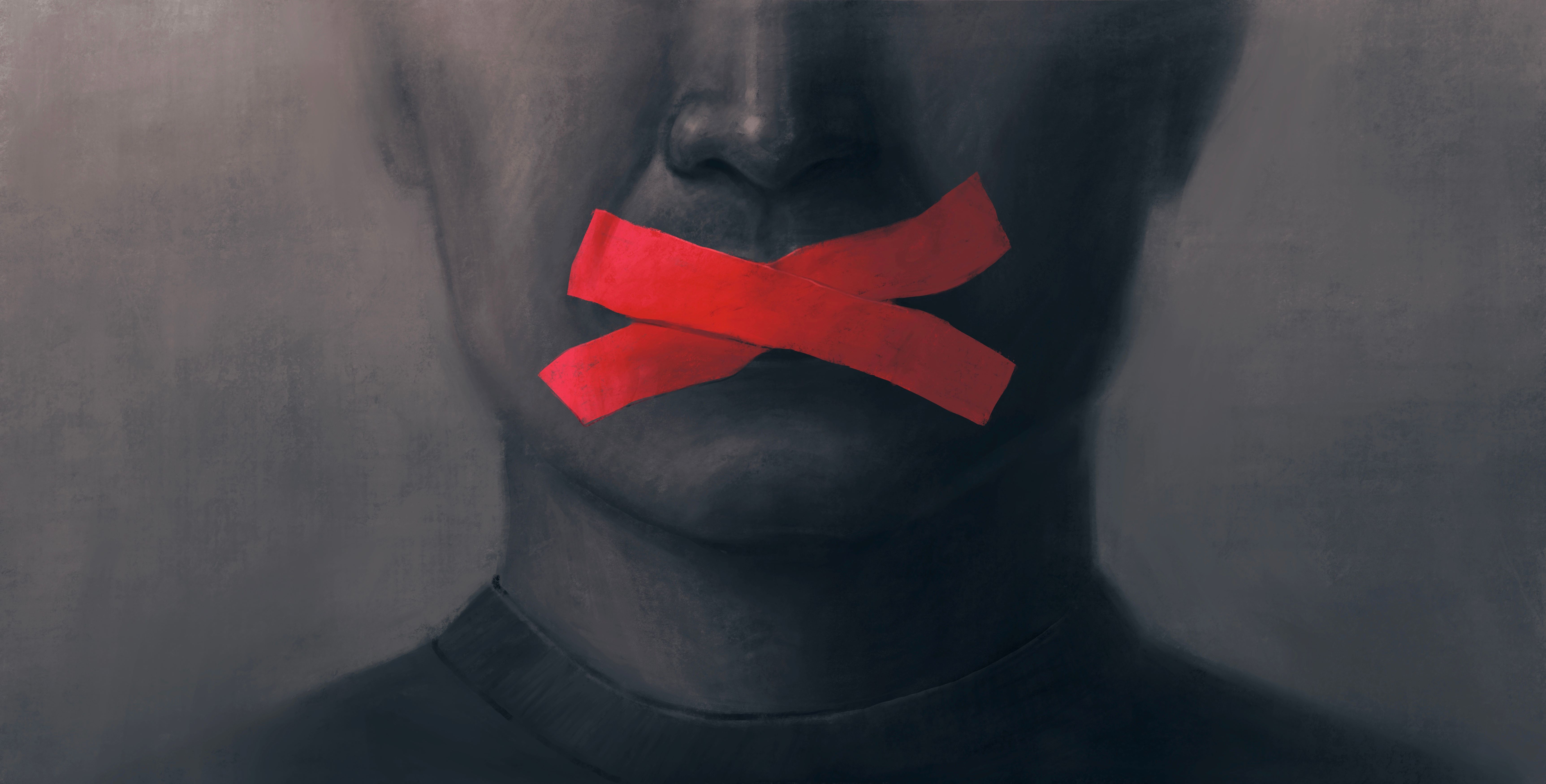



























![A demonstration against Israel's war on Gaza on Paulista Avenue in São Paulo on November 4, 2023, draws attention to the deaths of children while the media focuses on the war against terrorists. [Photo: Lina Bakr]](/sites/default/files/ajr/2024/Picture1.png)

